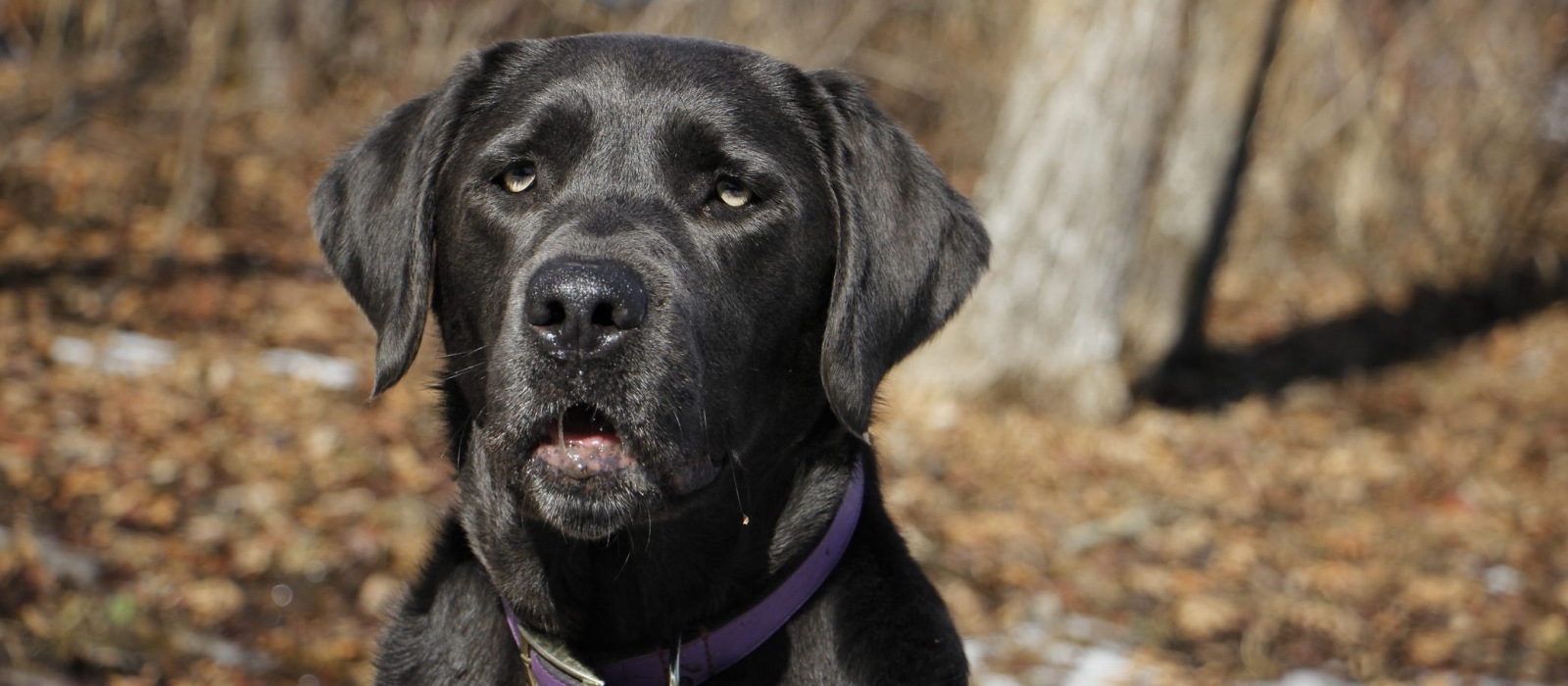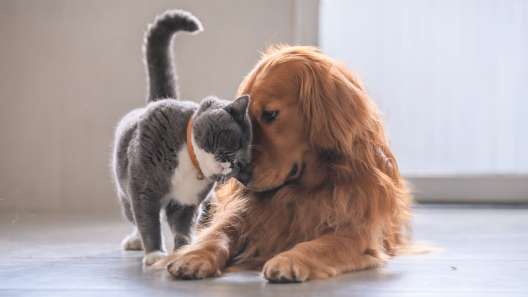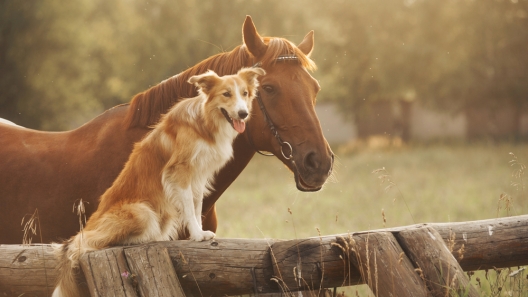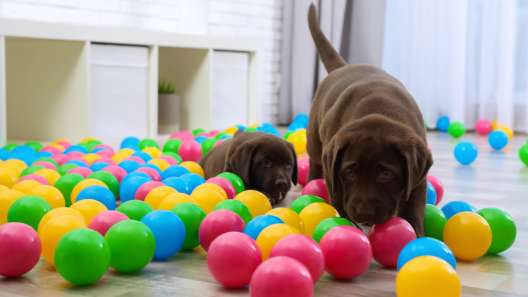-
Activity Level:
high
-
Shedding Level:
high
-
Grooming Level:
low
-
Trainability:
high
-
Good for Novice Owners:
high
-
Adaptability:
high
-
Kid/Pet Friendly:
often
-
Prey Drive:
low
-
Watchdog:
aware
- Average Size: Medium
- Average Lifespan: 11-13 years
- Registered?: aca, akc
Charcoal Labrador Retriever Dog Breed Information
Overview
Temperament
Adaptability
Health
Owner Experience
Grooming
Activity Level
Size
Life Span
Did You Know?
Some facts about Labrador Retrievers are that they are affectionate, energetic, playful, and come in several colors. Charcoal Labrador Retrievers, or Charcoal Labs, have a gray tint to their coat. Originally, it was believed that the gray tint appeared from outside Labrador lineage. However, genetics has been able to provide more than enough evidence to support that these are indeed Labrador Retrievers, albeit rare ones.
Their genes contain a diluting factor in coat color dominance traits that are responsible for the gray hue – something that is also present in Silver Labs and Champagne Labs as well. Although their coat color is a little different, Charcoal Labs are still the playful, loving dogs with hearts of gold that Labrador Retrievers are known for and make them one of the most popular dog breeds.
Like all Labs, Charcoal Labs are playful, curious, and affectionate dogs. In fact, they are one of the most affectionate dog breeds. If they are off-leash, their curiosity can cause them to wander off or they could get distracted by something and take off in a chase. Labrador Retrievers are known for being gentle, friendly, and sweet dogs when they are well-socialized.
They’re known for being one of the kid-friendly dog breeds that get along with children, other dogs, other pets, and pretty much everyone. This helps make them a great family dog. Although they will likely bark to alert you of strangers, they are usually more than excited to make new friends.
Highly adaptable, Labs are happy in almost any environment. As one of the most active dog breeds, they are best suited to homes with fenced yards where they can run. They can adapt to apartment living, but they must get enough daily exercise, attention, and mental stimulation to do so.
As with most dog breeds, they are sensitive to heat and extreme cold. They do relatively well in cool and colder weather, but if you have frigid, harsh winters, you may still want to gear up with some winter dog products.
Because they bond so closely with their families, they prefer to spend time with their favorite people and do not like to be left alone for long periods of time. As one of the smartest dog breeds with a lot of energy, they also get bored easily and can become destructive if they aren’t getting enough exercise or if they are left alone to entertain themselves for too long.
Potential health concerns to be aware of in Charcoal Labrador Retrievers can include hip dysplasia, elbow dysplasia, hereditary myopathy, progressive retinal atrophy, and cataracts. There is a condition that can occur in young adult Labs. It’s called exercise-induced collapse (EIC) and it has a genetic link. DNA tests will identify carriers and it’s one of the recommended tests that Lab breeders should run.
Good breeding practices and the health of the parents make a big difference in the health of Charcoal Lab puppies. Reputable breeders will screen their dogs to make sure they are not passing preventable issues to puppies. It’s important to talk to them about the health of both parents as well as any health tests or clearances that have been done. In addition to the EIC DNA test, the National Breed Club also recommends an elbow evaluation, hip evaluation, and ophthalmologist evaluation at a minimum.
As a large, deep-chested dog breed, the Charcoal Labrador Retriever, like other Labs and other deep-chested breeds, is at a higher risk for bloat. Bloat in dogs can be dangerous and quickly becomes life-threatening if the stomach flips (i.e., gastric torsion occurs). It’s important to know what you can do to reduce the risk and also to know the early warning signs that mean you need to get to the emergency vet.
Charcoal Labs are smart and eager to please, which means they pick up on things quickly and are easy to train. Despite their high energy and boredom with repetition, they are still one of the best dog breeds for first-time owners and a good fit for single owners or families.
There are several benefits of puppy training classes aside from training, so they are still a good idea, even if you don’t necessarily need them for help with training. They’re a great opportunity to socialize a puppy and build a bond with your dog. Plus, your Charcoal Lab will love making new friends, canine and human alike.
Like other Labs, Charcoal Labrador Retrievers have water-resistant fur that is short and in two layers. This dense double coat helps protect them from the cold and contributes to them being one of the dog breeds that love water. You have to be careful though because they may try to go for a swim no matter the season!
Labs shed year-round and more heavily as the seasons change. Brushing their coat a few times a week and daily during seasonal shedding is usually enough to keep their coat healthy. It’s not a bad idea to add an undercoat rake to your dog grooming brushes to help them shed their undercoat. Bathing is occasional and on an as-needed basis. If your Charcoal Lab has been swimming, hiking, or has gotten into things outside, it’s a good idea to give them a bath.
In addition to coat care, you will also need to take care of your Charcoal Labrador Retriever’s nails, ears, and teeth. Trimming nails once or twice monthly is usually enough to keep them from growing too long. Checking ears weekly and carefully cleaning them as needed can help prevent ear infections. Proper dental care for dogs, which includes daily brushing and teeth cleaning along with cleanings at the vet when needed, can help prevent painful dental diseases later in life.
Charcoal Labrador Retrievers are high-energy working dogs that need a lot of daily activity to be happy and healthy. Daily walks plus playtime, time to run, and other activities throughout the day are usually enough. But, Labs tend to love spending time with you and being active, so they will likely be up for more if you are.
In addition to having a lot of energy, Labrador Retrievers also have an extended puppyhood. They tend to maintain a puppy-like energy and exuberance until they are around 2-3 years old. After that, they will still be active dogs with a lot of energy, but they do tend to start mellowing out a little.
It’s recommended to keep activities low-impact until puppies are finished growing and their bones and joints are done developing. Swimming is a great low-impact activity and one that your Charcoal Lab is likely to enjoy. Once your Lab is cleared for more intense activities, you can try a lot of things with them; they’re athletic dogs that tend to excel and enjoy a variety of popular dog sports and other activities.
Fully-grown Charcoal Labrador Retrievers usually stand 21-25 inches tall and weigh 55-80 pounds.
Charcoal Labs generally live for 11-13 on average.
Labrador Retrievers have a thick, tapering tail. It helps them maneuver in the water almost like a rudder and is referred to as an “otter tail”.









